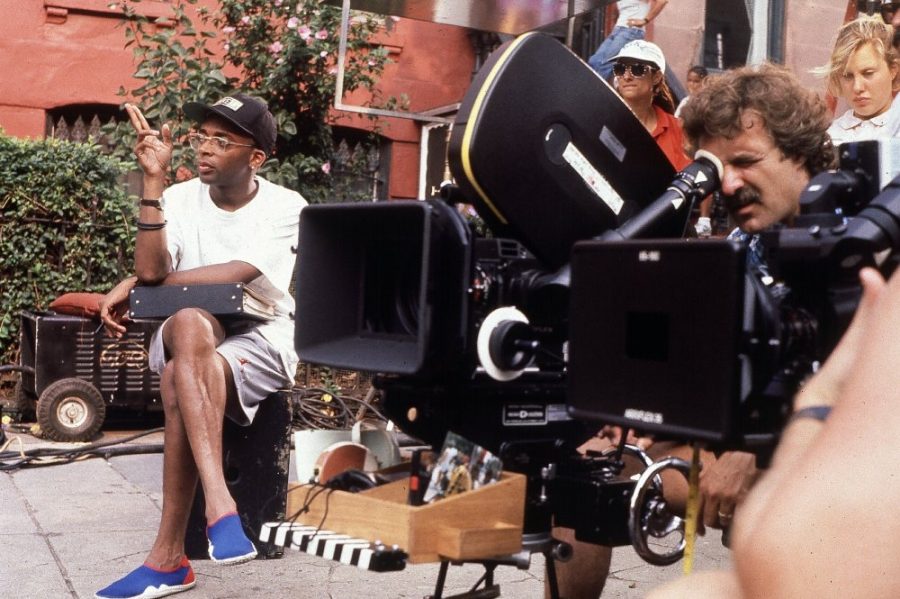Lee’s got game
Spike Lee directs “Do the Right Thing” in 1989. Lee’s company has produced over 35 films since 1983.
Just the words “A Spike Lee Joint” at the start of afilm generates curiosity for what’s in store. Lee revolutionized the landscape of independent cinema through themes of race relations and the struggle for African-Americans. Graduating from New York University, his films feel semi-autobiographical as he tells what he witnessed on the streets of Brooklyn.
My favorite movie directed by Lee is “Do the Right Thing,” which is about a hot day in a New York neighborhood where the citizen’s bigotry and rage builds until violence ensues. Directed and starring Lee, the film’s main theme consists of the heated racial tensions between the people of the area.
For example the characters of Mookie, played by Lee, and Pino, played by John Turturro, have a constant rift in the movie. The film scored two nominations at the Academy Awards, one for Danny Aiello’s performance and one for Lee’s screenplay.
Lee uses the stereotypes of black and white people to animate them to a certain extreme to show the topics of social division. Sometimes, Lee does it with just African-Americans. This clearly shown in Lee’s 1991 film “Jungle Fever” throughout the characters of Flipper and Gator. Flipper, played by Wesley Snipes, is a smart architect respected by his peers as a flourishing business man. But, Gator, played by Samuel L. Jackson, is the exact opposite. He lives his life on the streets as a crack addict, taking any steps necessary to to get the support he needs to survive. Lee interprets the stereotype of a ghetto black man who is living dangerously.
For his next film, Spike Lee is teaming up with “Get Out” director Jordan Peele to tell the story of a African-American police officer, Ron Stallworth, who infiltrates the Klu Klux Klan. Stallworth, played by Denzel Washington, starred in Lee’s other films “He Got Game” and the Academy Award nominated performance for “Malcolm X.”
The impact that Spike Lee made to cinema as a whole with films like “Do the Right Thing” and “Jungle Fever” lead the way for the other ethnic filmmakers, like Ava Duvernay and Ryan Coogler, to preach what they truly believe. Spike Lee’s impact is prominent today and definitely for the future of African-American filmmakers.






























